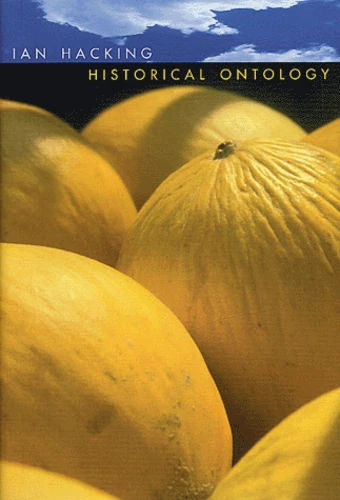Historical ontology
Par :Formats :
- Paiement en ligne :
- Livraison à domicile ou en point Mondial Relay indisponible
- Retrait Click and Collect en magasin gratuit
- Nombre de pages279
- PrésentationRelié
- Poids0.6 kg
- Dimensions16,5 cm × 24,5 cm × 3,0 cm
- ISBN0-674-00616-X
- EAN9780674006164
- Date de parution01/01/2002
- ÉditeurHarvard University Press
Résumé
"Historical ontology" is not, at first sight, a happy phrase. It is too self-important by half. I have always disliked the word "ontology" If, like myself, you can understand the aims of psychology, cosmology, and theology, but are hard pressed to explain what a study of being in general would be, you can hardly welcome talk of ontology. And yet, and yet: suppose we want to talk in a quite general way about all types of objects, and what makes it possible for them to come into being. It is convenient to group them together by talking about "What there is," or ontology. I think of myself as a dynamic nominalist, interested in how our practices of naming interact with the things that we name - but I could equally be called a dialectical realist, preoccupied by the interactions between what there is (and what comes into being) and our conceptions of it. I shall generalize, and examine all manner of constitutings. But above all, I will ask how these various concepts, practices, and corresponding institutions, which we can treat as objecta of knowledge, at the same time disclose new possibilities for human choice and action. The catchphrase "historical ontology" helps us think of these diverse inquiries as forming part of a family.
"Historical ontology" is not, at first sight, a happy phrase. It is too self-important by half. I have always disliked the word "ontology" If, like myself, you can understand the aims of psychology, cosmology, and theology, but are hard pressed to explain what a study of being in general would be, you can hardly welcome talk of ontology. And yet, and yet: suppose we want to talk in a quite general way about all types of objects, and what makes it possible for them to come into being. It is convenient to group them together by talking about "What there is," or ontology. I think of myself as a dynamic nominalist, interested in how our practices of naming interact with the things that we name - but I could equally be called a dialectical realist, preoccupied by the interactions between what there is (and what comes into being) and our conceptions of it. I shall generalize, and examine all manner of constitutings. But above all, I will ask how these various concepts, practices, and corresponding institutions, which we can treat as objecta of knowledge, at the same time disclose new possibilities for human choice and action. The catchphrase "historical ontology" helps us think of these diverse inquiries as forming part of a family.











